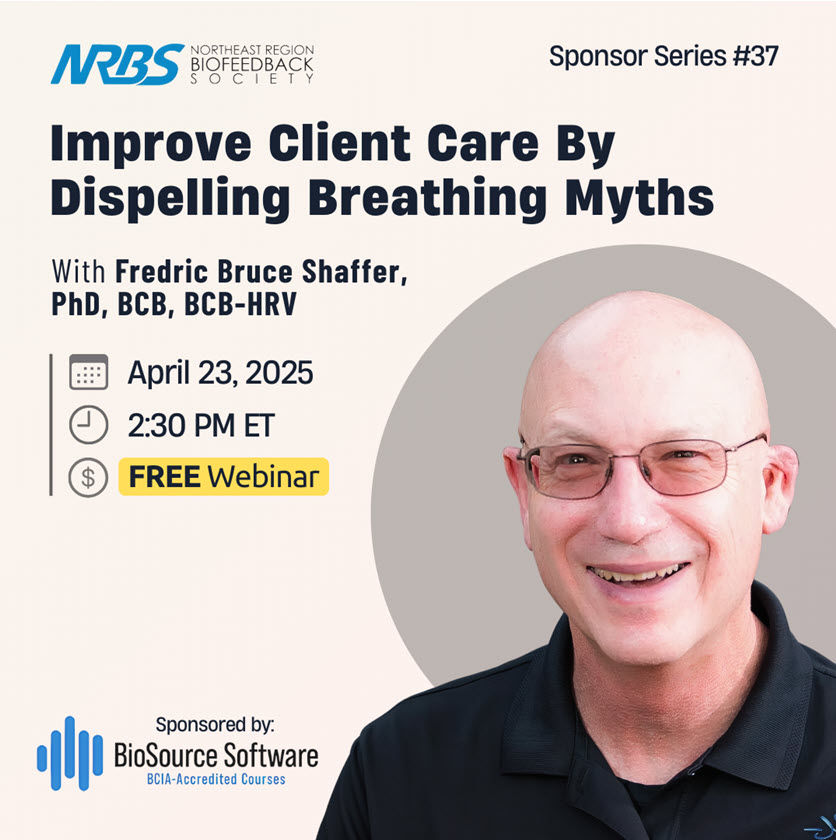Understanding the Differences Between ADHD and ODD: A Guide for Clinicians
- Zachary Meehan
- Apr 6
- 6 min read
Updated: 6 days ago

Diagnosing behavioral disorders in children and adolescents can be complex, especially when conditions like Attention-Deficit/Hyperactivity Disorder (ADHD) and Oppositional Defiant Disorder (ODD) often co-occur and share overlapping behavioral features.
Clinicians frequently encounter diagnostic “halo effects,” where the presence of one set of symptoms (e.g., impulsivity or defiance) can influence perceptions of another disorder. This overlap can lead to misdiagnosis, delayed treatment, and poor long-term outcomes. While ADHD and ODD can exist together, they are fundamentally different conditions with unique causes, symptom patterns, and intervention needs.
ADHD and ODD: Clinical Features and Functional Impairments
ADHD is a neurodevelopmental disorder defined by patterns of inattention and/or hyperactivity-impulsivity that are developmentally inappropriate and impairing. Children with ADHD often struggle with sustaining attention, following through on tasks, sitting still, or waiting their turn. These deficits can severely impact academic performance, peer relationships, and family functioning. Evidence shows that ADHD is specifically linked to deficits in cognitive performance and executive functioning, including difficulties with working memory, time management, and delayed gratification (Barkley et al., 2001).
ODD, in contrast, is characterized by a persistent pattern of angry, irritable mood, argumentative or defiant behavior, and vindictiveness toward authority figures. The dysfunction in ODD is less about attention or impulsivity and more about emotional regulation and social interaction. Children with ODD frequently lose their temper, refuse to comply with rules, deliberately annoy others, and blame others for their own mistakes. These behaviors often stem from environmental and familial stressors rather than neurological deficits, and are associated with high rates of family conflict and parental psychological distress (Forssman et al., 2012).
While both disorders can impair school performance and social relationships, the nature of the impairment differs. ADHD-related issues often stem from inattention and poor executive functioning, whereas ODD-related problems tend to be driven by defiance, conflict with authority, and emotional reactivity. Additionally, ADHD is more directly associated with occupational challenges and lower income in adulthood, while ODD alone may increase conflict but has less consistent impact on economic outcomes (Seppä et al., 2024).
Differential Diagnosis in Youth: Why It Matters
Accurate diagnosis between ADHD and ODD is critical, particularly because their developmental trajectories and treatment plans differ significantly. ADHD symptoms tend to persist into adolescence and adulthood, often evolving into challenges with organization, time management, and sustained focus in academic or occupational settings (Faraone et al., 2002). ODD, however, may either resolve with age or escalate into more severe behavioral disorders such as conduct disorder if not addressed early.
The importance of distinguishing between the two also lies in their respective treatment pathways. ADHD often benefits from pharmacological interventions such as stimulants, which improve attention and reduce impulsivity. However, these medications may not address the core emotional and behavioral dysregulation seen in ODD. In fact, research indicates that children with comorbid ADHD and ODD are less responsive to ADHD medications like methylphenidate compared to those with ADHD alone (D’Aiello et al., 2024). Behavioral interventions, parent management training, and family therapy are often more appropriate first-line treatments for ODD.
Misdiagnosis can also influence the stigma a child faces. ADHD is increasingly recognized and normalized as a neurodevelopmental condition, whereas children with ODD may be perceived as intentionally disruptive or oppositional, leading to negative interactions with teachers, parents, and peers. Getting the diagnosis right enables clinicians to frame the child's behavior in an empathetic, developmentally informed context and advocate for appropriate supports.
Making the Distinction in Practice
Distinguishing ADHD from ODD in practice requires attention to symptom timing, context, and underlying motivation. ADHD symptoms are typically present across multiple settings and appear early in development, often before age 12. They tend to be unintentional—children with ADHD are not choosing to ignore instructions or act impulsively. In contrast, ODD behaviors are often deliberate, emotionally reactive, and most pronounced in interactions with authority figures such as parents or teachers.
When defiant behavior appears situational or rooted in frustration with rules, ODD should be strongly considered. Comorbidity should be diagnosed when a child shows hallmark symptoms of both conditions independently: for example, persistent inattention and hyperactivity across contexts, coupled with chronic argumentative or vindictive behavior specifically directed at adults. Structured interviews, behavior checklists, and input from multiple informants (e.g., parents, teachers) are critical in making an accurate distinction. Differentiating comorbidity from misattributed symptoms is especially important because combined presentations often predict more severe clinical outcomes and necessitate integrated treatment approaches (Kaźmierczak-Mytkowska et al., 2022).
Conclusion
Though ADHD and ODD can look similar on the surface—especially in settings like classrooms or clinics where behavioral disruptions are most visible—they are distinct disorders with unique causes, symptoms, and treatment needs. Clinicians must be vigilant in their assessments, accounting for cognitive, emotional, and environmental factors. Accurate diagnosis not only informs better treatment but also supports long-term positive outcomes and reduces the burden of misunderstanding on both the child and their family.
Key Takeaways for Clinicians
• ADHD and ODD often co-occur, but they are distinct disorders with different symptom profiles, developmental roots, and treatment needs. Avoid diagnostic “halo effects” by carefully evaluating each symptom cluster.
• ADHD is rooted in neurodevelopmental deficits, particularly inattention, hyperactivity, and executive dysfunction, while ODD is characterized by emotional dysregulation and defiant behavior, often shaped by environmental and relational stressors.
• Getting the diagnosis right matters: ADHD typically benefits from medication, while ODD requires behavioral interventions. Misdiagnosis can lead to ineffective treatment and added stigma.
• To distinguish the two, assess behavior across settings and consider motivation—ADHD symptoms are generally unintentional, whereas ODD behaviors are deliberate and situational. Use structured tools and multi-informant reports to guide diagnosis.
Glossary
ADHD (Attention-Deficit/Hyperactivity Disorder): a neurodevelopmental disorder characterized by persistent patterns of inattention and/or hyperactivity-impulsivity that interfere with functioning or development.
behavioral interventions: therapeutic approaches that aim to change behavior patterns through the use of reinforcement strategies, often employed in the treatment of ODD.
comorbidity: the co-occurrence of two or more disorders in the same individual, such as ADHD and ODD.
differential diagnosis: the process of distinguishing one disorder from others with similar features to ensure accurate diagnosis and treatment.
executive functioning: a set of cognitive processes, including working memory, flexible thinking, and self-control, often impaired in individuals with ADHD.
halo effect: a cognitive bias where the presence of one trait (e.g., disruptive behavior) influences the perception or diagnosis of another trait or disorder.
hyperactivity-impulsivity: a symptom domain in ADHD involving excessive movement, restlessness, interrupting, or acting without thinking.
inattention: a symptom domain in ADHD marked by difficulty sustaining attention, organizing tasks, and following through on instructions.
ODD (Oppositional Defiant Disorder): a behavioral disorder characterized by a recurring pattern of angry/irritable mood, argumentative/defiant behavior, or vindictiveness toward authority figures.
stimulant medication: a class of drugs commonly used to treat ADHD by enhancing focus and attention (e.g., methylphenidate).
References
Barkley, R. A., Murphy, K. R., & Fischer, M. (2008). ADHD in adults: What the science says. Guilford Press. https://doi.org/10.5860/choice.45-5266
D’Aiello, B., Menghini, D., Di Vara, S., De Rossi, P., & Vicari, S. (2024). Predictors of methylphenidate response in children and adolescents with ADHD: The role of sleep disturbances. European Archives of Psychiatry and Clinical Neuroscience, 1–9. https://doi.org/10.1007/s00406-024-01642-3
Faraone, S. V., Biederman, J., & Mick, E. (2006). The age-dependent decline of attention deficit hyperactivity disorder: A meta-analysis of follow-up studies. Psychological Medicine, 36(2), 159–165. https://doi.org/10.1017/S003329170500471X
Forssman, L., Eninger, L., Tillman, C. M., Rodriguez, A., & Bohlin, G. (2012). Cognitive functioning and family risk factors in relation to symptom behaviors of ADHD and ODD in adolescents. Journal of Attention Disorders, 16(4), 284–294. https://doi.org/10.1177/1087054710385065
Kaźmierczak-Mytkowska, A., Butwicka, A., Lucci, K., Wolańczyk, T., & Bryńska, A. (2022). The functioning of families of teens with attention deficit hyperactivity disorder and oppositional defiant disorder. Psychiatria Polska, 56(4), 889–902. https://doi.org/10.12740/PP/OnlineFirst/128372
Seppä, S., Huikari, S., Korhonen, M., Nordström, T., Hurtig, T., & Halt, A. H. (2024). Associations of symptoms of ADHD and oppositional defiant disorder (ODD) in adolescence with occupational outcomes and incomes in adulthood. Journal of Attention Disorders, 28(10), 1392–1405. https://doi.org/10.1177/10870547241259329
About the Author
Zachary Meehan earned his PhD in Clinical Psychology from the University of Delaware and serves as the Clinic Director for the university's Institute for Community Mental Health (ICMH). His clinical research focuses on improving access to high-quality, evidence-based mental health services, bridging gaps between research and practice to benefit underserved communities. Zachary is actively engaged in professional networks, holding membership affiliations with the Association for Behavioral and Cognitive Therapies (ABCT) Dissemination and Implementation Science Special Interest Group (DIS-SIG), the BRIDGE Psychology Network, and the Delaware Project. Zachary joined the staff at Biosource Software to disseminate cutting-edge clinical research to mental health practitioners, furthering his commitment to the accessibility and application of psychological science.

Support Our Friends







Comments